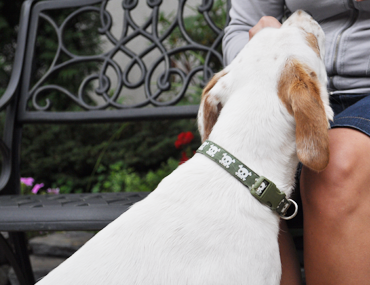Dr. Ernie Ward explains why it's important to heed your veterinarian's advice. For more from Dr. Ward, find him on Facebook or at www.drernieward.com.
“But Rebel was fine. Why should I give him the pills once he’s better? I don’t understand why he’s sick again.”
If I’ve heard that excuse once, I’ve heard it a thousand times during the past 21 years of veterinary practice. And I still don’t get it.
Don’t get me wrong; I don’t believe my clients mean any harm. I understand that administering a pet pills and potions can be challenging at times. The sooner you can stop the better for everyone. But don’t stop before you’re supposed to.
Garfield was a kitty with bathroom problems. By bathroom problems, I mean chronic diarrhea. Smudges on the sofa; runs on the rugs; piles on the plush. After a series of tests, I made a diagnosis of inflammatory bowel disease (IBD). One of the first steps I take when treating IBD is changing diet. By changing diet, I mean feeding a different food. Maybe I didn’t communicate it clearly enough.
“She’s no better, maybe even worse.” I felt immediately welcome. “That fancy, expensive diet didn’t do a thing.” The temperature in the room raised a degree or ten.
The thing about dietary trials is you have to give them time to work. Changing diets for eight weeks is typically a good start. Garfield should’ve been on the special diet for four weeks by this time.
“I had to give that food to my neighbor after a week because it obviously wasn’t helping.” So she only gave the food for a week? “Of course! Since then I’ve been trying every food I could find at the grocery store.”
Shoot me now. Drive hot pokers in my eyes. Anything to get me out of this exam room. All I could think of was how much time I’d spent explaining why we change protein sources, how the ingredients in many foods are the triggers for IBD, the need to stick with a therapeutic diet for a month to see if it would help. All forgotten after a week. But my day was about to get better.
 “My neighbor told me her cat got better after six months of doing nothing. I think that’s what I’ll do.”
“My neighbor told me her cat got better after six months of doing nothing. I think that’s what I’ll do.”
She’d somehow forgotten that her cat’s diarrhea had gotten progressively worse over the past three or four months before she finally brought Garfield to me. Somebody give me a fork covered in cayenne.
The biggest treatment mistake pet parents make is not completing a prescription. They stop short a few days because their pet appears normal. They allow their dog to resume normal activity because he wants to go outside. They wait a few extra days to see if the problem gets better. They give their pet an extra goodie despite the vet’s insistence theyfeed a special diet. And then they wonder why things return or don’t improve.
There’s a couple of things you need to know: 1) Vets don’t know exactly how long a pet needs a medication or treatment. We often err on the safe side and add a few extra days. Most of the time, in my experience, the pet needs those few extra days. 2) You can’t see most healing. When your pet has cleared 80% of an infection or 75% of the injured tissue has healed, they appear fine. So you stop whatever it is you’re doing. In a few days or couple of weeks, the infection returns with a vengeance or the pet reinjures itself. Happens all the time. Doesn’t have to. 3) Vets aren’t wasteful. I don’t give meds or treatments unless the pet needs it. Use as directed. And finish it.
Sometimes you need to follow the directions. You’ll save yourself time, money, and frustration while helping your best friend.
If you have any questions or concerns, you should always visit or call your veterinarian – they are your best resource to ensure the health and well-being of your pets.
The opinions and views expressed in this post are those of the author's and do not necessarily represent the beliefs, policies or positions of PetHealthNetwork.com, IDEXX Laboratories, Inc. or its affiliates and partner companies.
